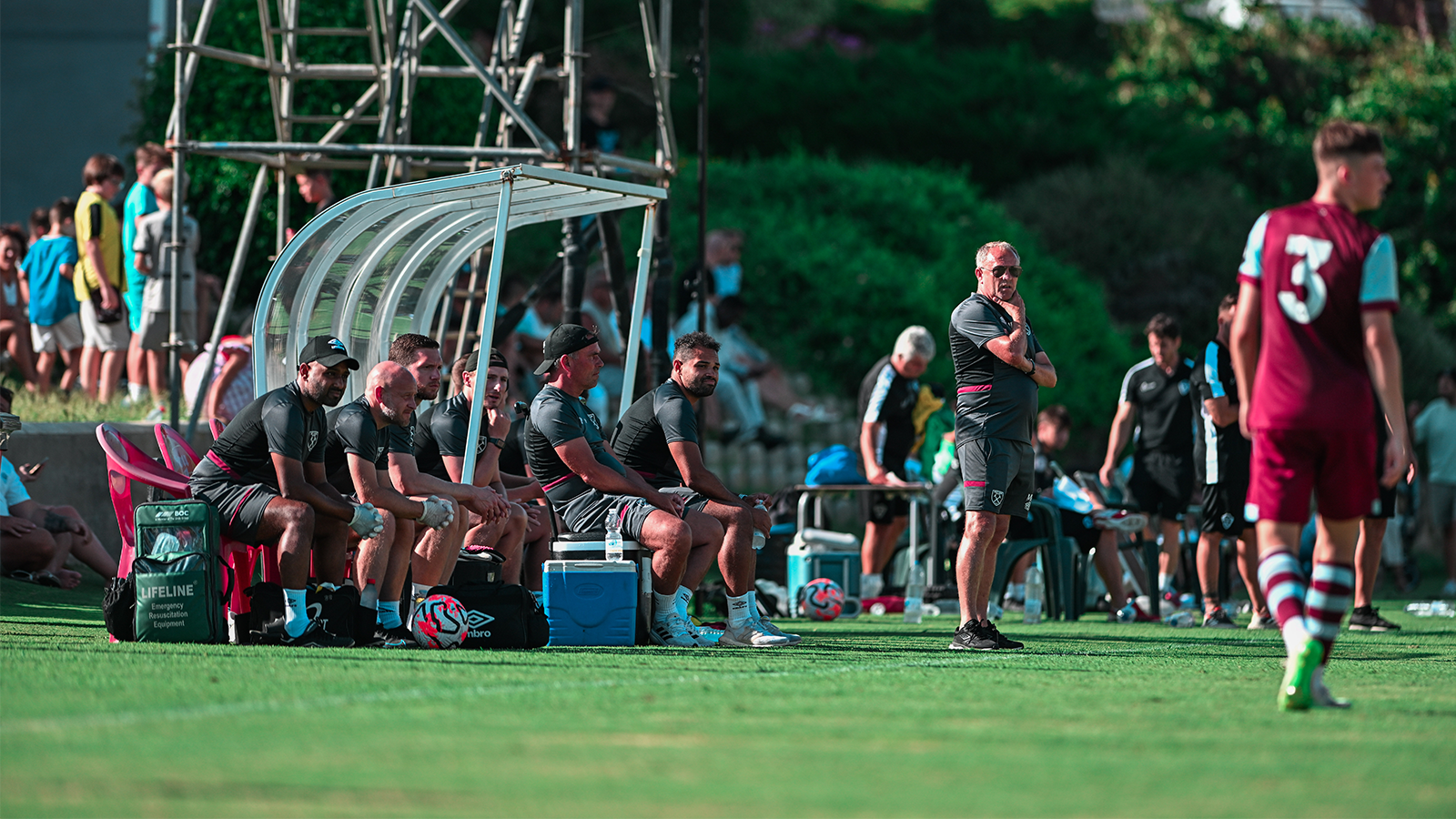Throughout West Ham United U21s' tour of Spain, one word has dominated the conversations: heat.
During the day, temperatures reached 40 degrees, so the development squad trained early in the morning and again in the evening.
Still, the weather showed few signs of cooling down. And training in 30 degree-plus heat provided its challenges, for backroom staff and players alike.
As such, the Hammers worked around the clock to ensure their players could compete and train to their highest level and that they came back from the trip with plenty of positives to take into their Premier League 2 campaign – including a 2-0 win over Elche B.
What are staff looking for?
In short, high temperatures can lead to lower-level performance and cause heat exhaustion should preventative measures not be followed.
“Being dehydrated can lead to poor decision-making, dizziness and blood pressure issues," Academy doctor Jinesh Mehta said. “That would be end-stage exhaustion which is very uncommon in this group due to the number of preventative stages involved.”
It is an issue echoed by nutritionist Rhyse Gonsalves, whose role involves making sure the players' energy intake matches and best prepares them for their physical output. He explains that the hot conditions can take some time to adjust to the heat but the players were switched on to the challenge from the offset.
“It’s completely different playing and training in these conditions to England," Gonsalves confirmed. “We naturally sweat more in this heat, which leads to increased endurance and fatigue. Everything is more strenuous in the heat - and that’s how our brain works.
“So, we want to keep the body temperature cooler while keeping the players hydrated as well. This will enable us to delay that response and maintain the players performing at a high level.”
How is that achieved?
As such, plenty of work is undertaken to keep the players performing at a high level. The young Hammers were prepared before travelling to Spain on three things – nutrition and diet, hydration, and sleep – factors that can affect the players' performance.
“Human factors are at play due to an environment change, and you forget some of the routines you do,” Mehta explained. “A change in location or time zone will affect your daily routine.
“But with every prep day, all the players are reminded to stay hydrated and there are plenty of drinks breaks as well. Most of the time the preventative stuff works but if not, it can lead to a drop in performance.”
For a game, there is a process that Gonsalves oversees, in terms of hydration and types of hydration during the tour.
The players will have a heavy carbohydrate-based meal the night before a match to ensure they can cope with the demands of performing in the heat. There is then a pre-match meal, the last chance for the players to get a full meal on board ahead of the game, before switching to faster fuels such as cereal bars, and rice cakes.
When you are even closer to the match, the team uses gels and hydration drinks, something of increased importance during the tour of Spain.
“Gels and drinks get into the bloodstream quicker,” Gonsalves explained, “so, you also have fewer issues around digestion as you are not playing on a full stomach. Around an hour before kick-off, the switch happens towards liquids because they are so much easier to digest.”
The process is repeated during the game with the players taking onboard drinks, electrolytes and frozen gels for energy and hydration. During the 2-0 win over Elche B, there were two drinks breaks as well as a half-time interval for the players to ensure they were fully hydrated.
The goal is not to get the body cold but to regulate the body's temperature – the players are still performing.
“We want to keep the legs warm because they are working and functioning,” Gonsalves said. “But the internal body temperature slows down performance so if we can reduce that a bit with frozen gels and drinks it will help that player perform better in the heat. And that will put less stress on the heart and allow them to optimise their performance.”













